On View
See Florida’s New Underwater Sculpture Park, Which Is Delighting Scuba Divers and Oysters Alike
The sculptures were designed to provide habitats for marine life.
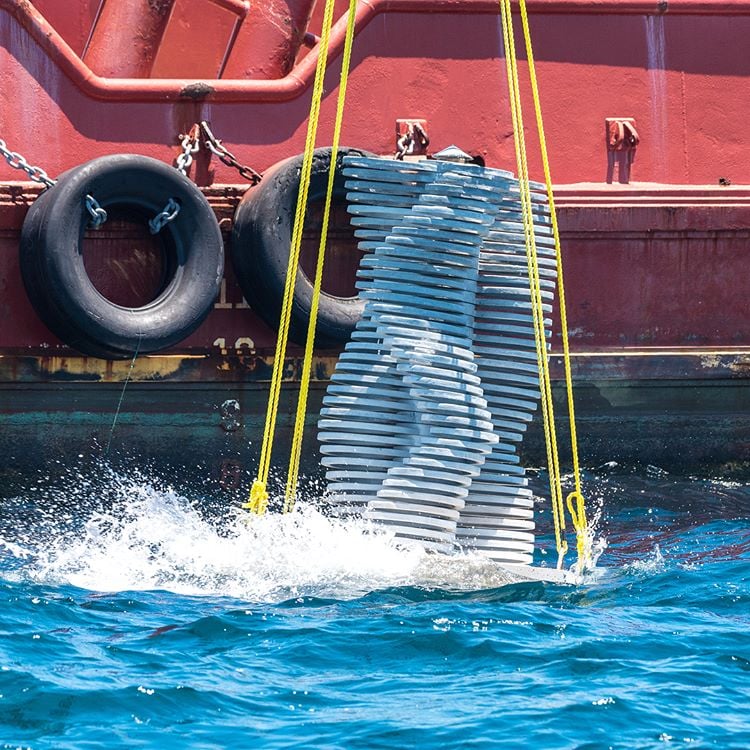
The sculptures were designed to provide habitats for marine life.

Sarah Cascone

Want to go to a museum but can’t bear to be indoors this summer? Now you don’t don’t have to choose. The Underwater Art Museum, the US’s first permanent underwater sculpture garden, has just opened to the public.
Located less than a mile off the coast of Walton County, Florida, the sculptures are situated roughly 60 feet underwater, which means visitors must also be certified scuba divers.
The inaugural exhibition was installed on June 25, with some 80 onlookers gathering to watch the submersion of seven sculptures, selected by a jury following an international open call. Artists designed each work using materials that will not only weather the underwater environment, but help promote the development of a healthy reef. Currently, the coastal waters in this part of the Gulf of Mexico are 95 percent barren sand flats. The museum was conceived of in the hope that the sculptures will help promote marine life, eventually creating a protective coral reef.
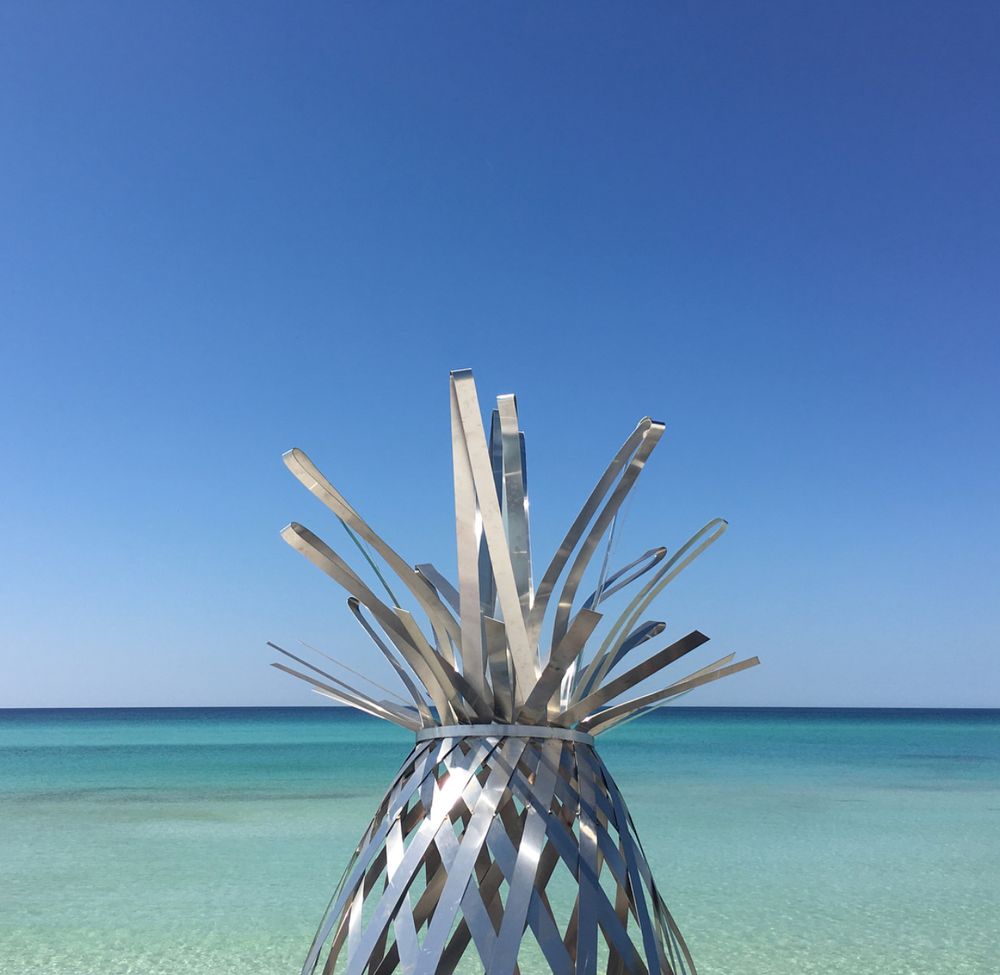
Rachel Herring, The Grayt Pineapple before being installed at the Underwater Art Museum. Photo courtesy of the Underwater Art Museum.
“After nearly two years of planning and fundraising, it was a surreal hour watching the artwork being lowered into the Gulf of Mexico,” read a statement from Jennifer Steele, executive director of the Cultural Arts Alliance of Walton County, which launched the fledgling institution as part of its Art in Public Spaces Program. The Underwater Art Museum is run in partnership with the South Walton Artificial Reef Association and Visit South Walton, and is supported by the National Endowment for the Arts, the Alys Foundation, and Visit Florida.
“The perspective when viewing the sculptures in a marine environment is drastically different than when on land,” said Reef Association board president Andy McAlexander in a statement, after having dived down to see the sculptures. “The intent of the project was proven within an hour of deployment when we could see schools of bait fish swarming the structures, completely validating the entire effort.”
The artworks on view are Propeller in Motion by Marek Anthony, Self-Portrait by Justin Gaffrey, The Grayt Pineapple by Rachel Herring, JYC’s Dream by Kevin Reilly, SWARA Skull by Vince Tatum, Concrete Rope Reef Spheres by Evelyn Tickle, and Anamorphous Octopus by Allison Wickey.
Many of the works are made out of stainless steel, but Tickle worked with a special patent-pending variety of concrete that she developed to match the chemical makeup of an oyster shell. It is designed specifically to attract the bivalves, which the artist hopes will fill in the nooks and crannies of her labyrinthine rope-like sculpture.
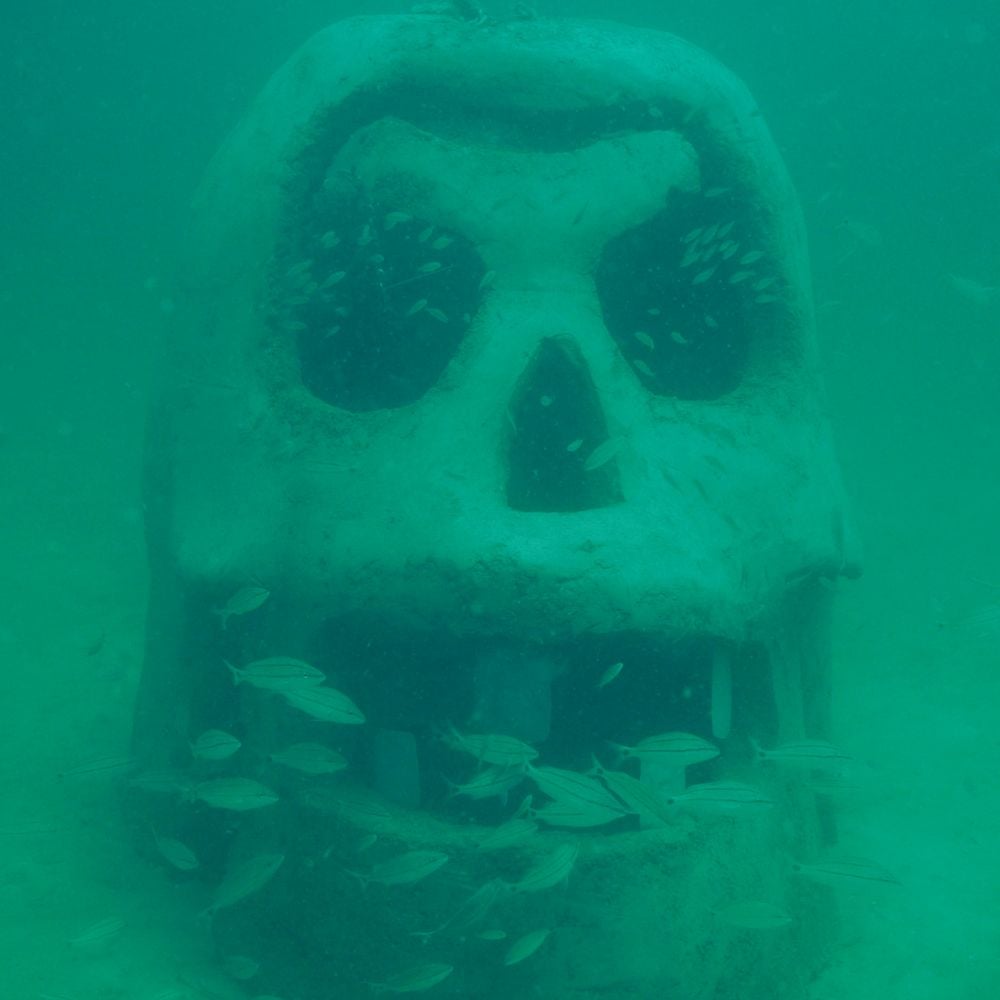
Vince Tatum, SWARA Skull at the Underwater Art Museum. Photo courtesy of the Underwater Art Museum.
One thing the works have in common is the inclusion of openings and gaps for marine life to swim through—and to hopefully call home. “For a diver, one of the most exciting things to do is shine your dive-light in a dark hole and see who is staring back at you,” said Tatum. “A large skull covered in coral and marine growth, teeming with life, makes for one hell of a photo-op.”
The museum itself is free of charge, and can be approached by boat or by swimming from the shore. (Trips can also be arranged with Fish Booty Charters and Emerald Coast Scuba.)
The museum will expand each year as additional works are selected to join the underwater garden, which is being billed as an eco-tourism attraction. The Underwater Museum does hope to appeal to art lovers and scuba divers, but it also wants to be a resource for marine scientists, ecologists, and students by creating a thriving habitat where they can study local marine life and the impact of artificial reef systems on the Gulf ecosystem.
See more photos of the Underwater Art Museum below.
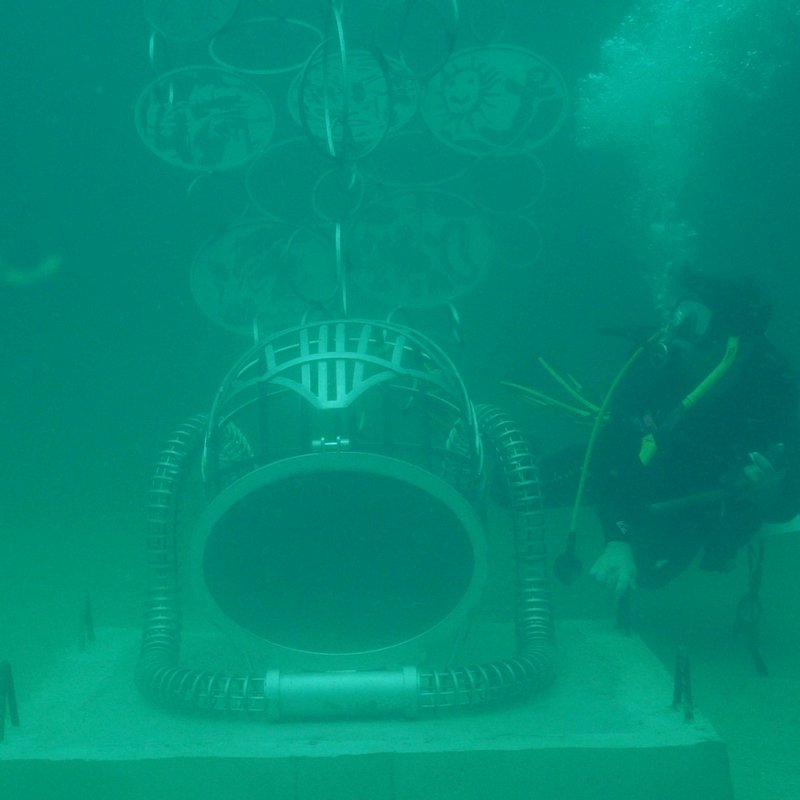
Kevin Reilly, JYC’s Dream at the Underwater Art Museum. Photo courtesy of the Underwater Art Museum.
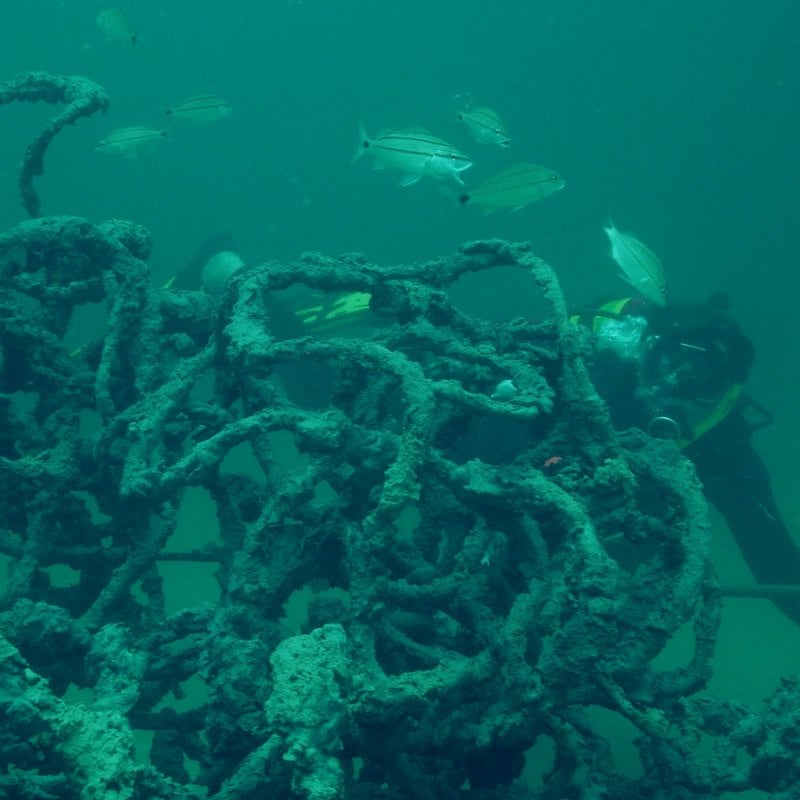
Evelyn Tickle, Concrete Rope Reef Spheres at the Underwater Art Museum. Photo courtesy of the Underwater Art Museum.
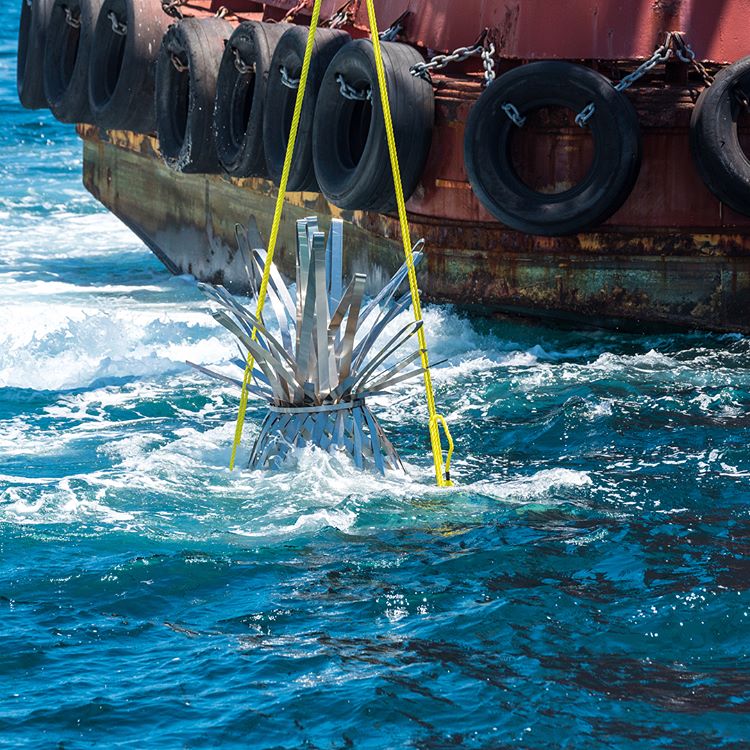
Rachel Herring, The Grayt Pineapple being installed at the Underwater Art Museum. Photo courtesy of the Underwater Art Museum.

Marek Anthony, Propeller in Motion at the Underwater Art Museum. Photo courtesy of the Underwater Art Museum.

Rachel Herring, The Grayt Pineapple at the Underwater Art Museum. Photo courtesy of the Underwater Art Museum.
The coordinates for the center of the Underwater Museum of Art, located .7 miles off the coast of Grayton Beach State Park in Walton Country, Florida, are Latitude N 30 18.754 Longitude W 86 09.522.